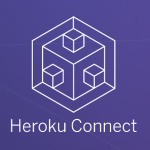About CallRail
CallRail provides businesses with tracking phone numbers that they can use to gather valuable customer interaction data from phone calls. This includes the source of the call - an advertisement on social media, for example - as well as information about the callers themselves. Additionally, once a call is completed, CallRail automatically generates a transcript of the call. By gathering this data, CallRail allows businesses to score their leads more easily and gauge the effectiveness of different marketing campaigns.
About Heroku Connect
Heroku Connect is a data integration tool that uses bi-directional synchronization between Salesforce and Heroku Postgres to harmonize Postgres data your Salesforce information like contacts, accounts, and custom objects. Heroku connect includes a user-friendly, point-and-click interface so non-tech-savvy users can set up the service in minutes without coding or complicated configuration procedures.
Popular Use Cases
Bring all your CallRail data to Amazon Redshift
Load your CallRail data to Google BigQuery
ETL all your CallRail data to Snowflake
Move your CallRail data to MySQL
Bring all your Heroku Connect data to Amazon Redshift
Load your Heroku Connect data to Google BigQuery
ETL all your Heroku Connect data to Snowflake
Move your Heroku Connect data to MySQL
CallRail's End Points
CallRail Companies
Create separate companies with different configurations and tracking numbers. Then, you can retrieve information like the company’s name, creation date, lead scoring settings and company ID. This will allow you to track each different parameter in your analytics.
CallRail Users
Track any users who have access to your call data at various permission levels. This field provides you with contact information about the user - including their name, email, user ID, role and company - so that you can integrate your user and company data for analysis.
CallRail Accounts
Retrieve an account’s name and ID and choose whether or not to enable outbound call recording. Since this is the top level object for CallRail, you can also use that account ID to integrate data - such as “Company” or “Tracker” - that is generated by any lower level object within that account.
CallRail Integrations
Retrieve data from other data sources by integrating CallRail data with third party tools. The data in this field includes the name of the third party tool being integrated, the type of integration, its status, the unique integration ID, and associated companies. CallRail can use all of this data to provide more robust marketing analytics.
CallRail Trackers
Gather call data from tracking numbers that can either be linked to a specific source or associated with a particular visitor. This field can retrieve a variety of data from those calls, including the tracker ID, tracking numbers and associated companies. This information can help you qualify leads and gauge the effectiveness of marketing campaigns.
CallRail Calls
Retrieve data on an individual call, including the duration, source, phone number and status i.e., whether it was answered, missed, etc. Additionally, you can retrieve contact information for the caller, including their name, phone number, and whether or not CallRail rates the call as having provided a good lead.
Heroku Connect's End Points
Heroku Connect Synchronization of Apps Across Heroku and Salesforce
Heroku Connect allows you to build apps with open source stacks, natively integrate the apps with Postgres, and directly sync them with Salesforce. By integrating your Salesforce data with Heroku Postgres, it's easy to combine the power of the Lightning Platform with Heroku. Heroku Connect makes the process of building apps that bring your data and processes to your users as easy as coding in SQL.
Heroku Connect External Objects
Heroku Connect External Objects let you make your Heroku Postgres database information available inside your Salesforce deployment. This empowers you to synchronize your information across both platforms as you create, read, update, and delete data. By creating sophisticated applications inside Heroku and making the app data available to your Salesforce processes, you'll present a seamless experience in Salesforce, while all of your data stays inside Heroku Postgres. Moreover, configuring Heroku-Salesforce integrations for data pertaining to apps, sensors, customers, and products is a simple, point-and-click process that doesn't require any coding skills. Heroku External Objects combined with Salesforce Connect makes it easy to create a seamless experience across all of your business systems.
Heroku Connect Data Security Compliance
Heroku Shield Connect supports the development of applications that share sensitive data with Salesforce while complying with the strictest data security standards. Safely integrate CRM data, Protected Health Information (PHI), Personally Identifiable Information (PII), contact information, account data, and custom objects between Heroku apps and Salesforce. Heroku Shield Connect provides an easy pathway for building advanced applications that need to adhere to the most complicated data security regulations, including HIPAA compliance.
Heroku Connect Easy Application Development and Scaling
Through its compatibility with the most popular stacks and programming languages, Heroku Connect facilitates easy application development. Its add-on ecosystem includes your favorite development tools and databases (like New Relic, Mongo, and Redis) so you can use them with the applications you're creating. Through Heroku's proven infrastructure, which currently supports 26 billion daily transactions for massive consumer websites (such as Upworthy and Bonobo) virtually limitless scaling is available for high volume applications.








